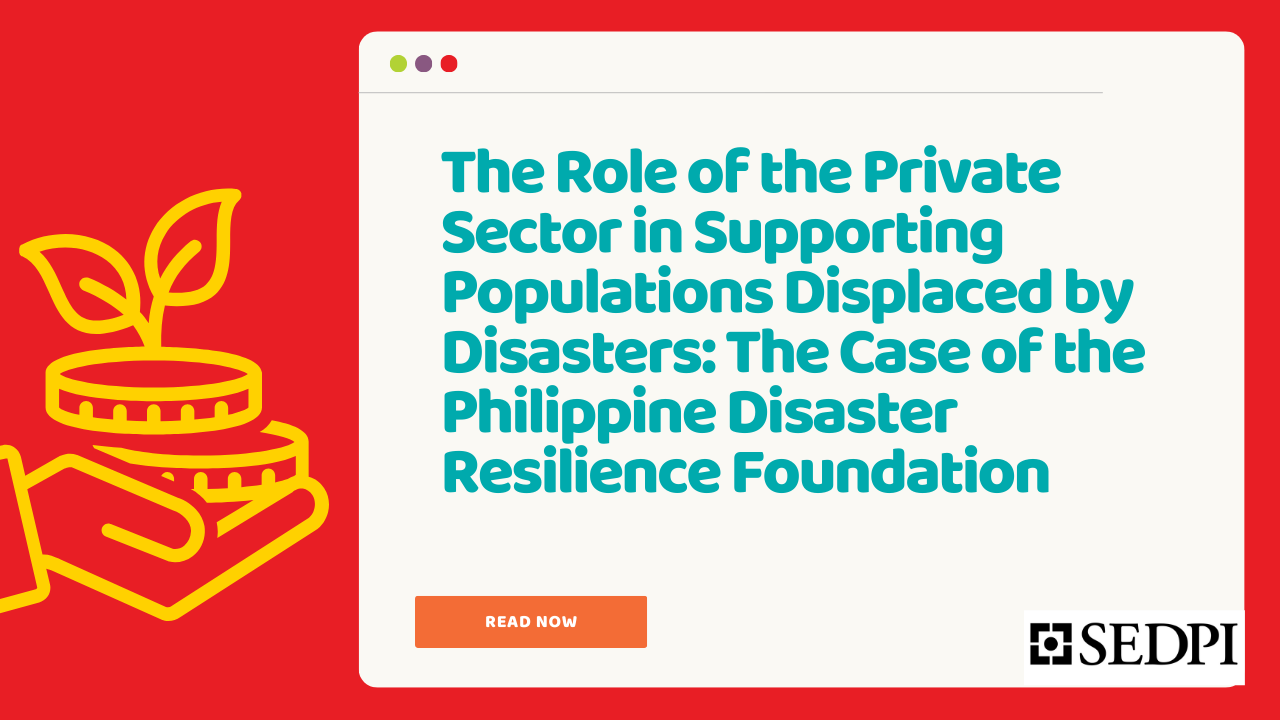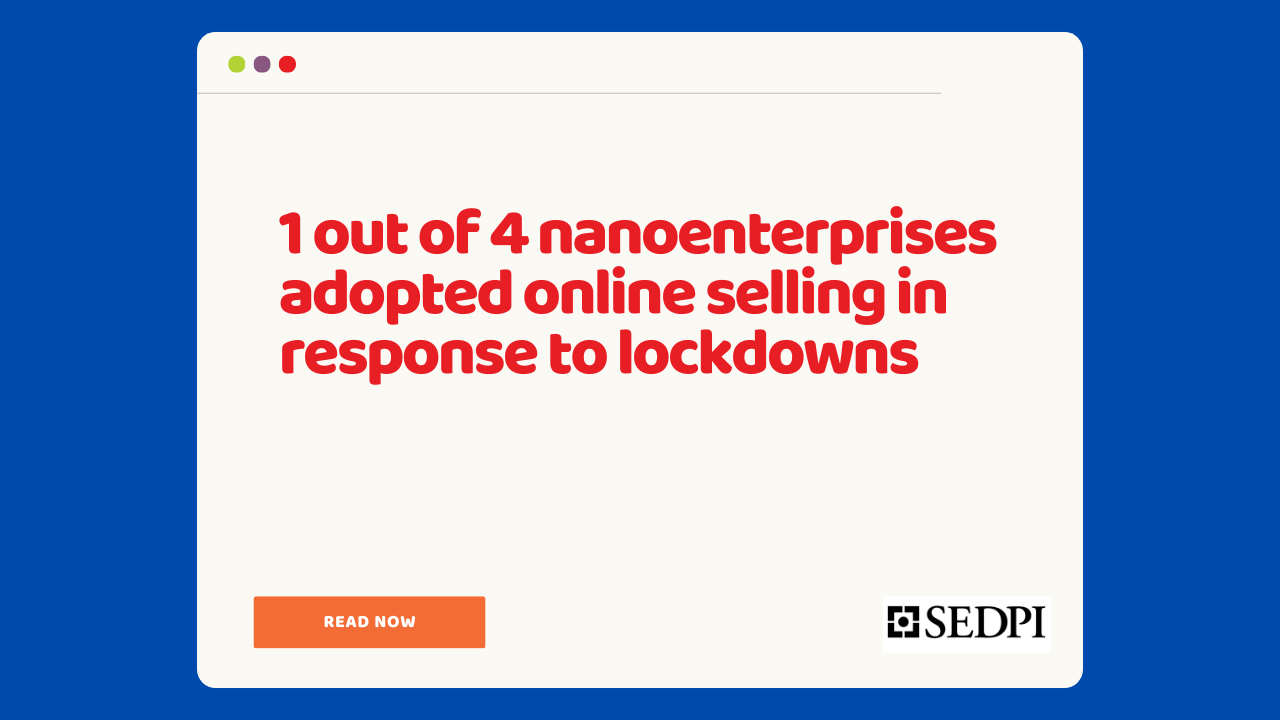Author: Emilenn Kate Sacdalan-Pateño
-

A case for nanoenterprises
According to the Department of Trade and Industry (DTI), there are nearly a million microenterprises in the Philippines. DTI considers any business with less than PhP3 million in assets and less than 10 employees as microenterprise. The challenge with this classification in the social development perspective is that it lumps together poor and non-poor enterprises…
-

The Role of the Private Sector in Supporting Populations Displaced by Disasters: The Case of the Philippine Disaster Resilience Foundation
This paper is written by SEDPI Chairperson, Mr. Edwin M. Salonga. You may download the copy of the whole article here: The Role of the Private Sector in Supporting Populations Displaced by Disasters: The Case of the Philippine Disaster Resilience Foundation Edwin M. Salonga*[1] Abstract Considered an immediate impact of disasters, displacement is counterproductive to development…
-
ARBOs Remain Covid-free
Agrarian Reform Beneficiary Organizations (ARBO) in Sarangani, Sultan Kudarat, Maguindanao, and Lanao del Sur Provinces remain covid free. This is the result of the ARBO covid-19 quick assessment conducted by SEDPI on April 20-24, 2020. While some ARBOs have completely stopped operations, 36% or ten (10) out of twenty-eight (28) participating ARBOs continue to provide…
-
Update 3: Community assessment and recommendations for support to microenterprises and the informal sector during and after COVID-19
SEDPI is a group of social enterprises that provide capacity building and social investments to development organizations and directly to microenterprises. We serve ~8,000 microenterprises in Agusan del Sur and Surigao del Sur, two of the poorest provinces in the Philippines. Most of our members, about nine in 10, are women with an average age…
-
Coops learn about proper client selection
Choosing the right clients is one of the major factors in a successful microfinance business. Proper client selection will make microfinance institutions avoid several delinquency problems and will surely save a lot of their time and efforts in the future. For the second day of the credit competency training with seven credit cooperatives from Northern…
-
Coops trained on risk management & financial management
An important part of addressing delinquency for cooperatives is risk management — a systemic approach that includes identification and prioritization of risks, and implementation of strategies to mitigate the risks. This approach entails both the prevention of potential problems and early detection of actual problems of cooperatives. Risk management is the focus of the third…
-
Sir Vince Rapisura trains coops on shields to delinquency, remedial management
For cooperatives who face a lot of risks, financial shields to delinquency must always be in place. Remedial management must also be employed to prevent the occurrence of, and bring about prompt and satisfactory conclusions to problem accounts. The final sessions of the credit competency training with seven credit cooperatives from Northern Luzon were handled…
-
Promoting social investments: Ateneo and SEDPI conducts training of trainers for social investors
Ateneo and SEDPI reached another milestone in their partnership with the implementation of a training of trainers program that aims to develop trainers to promote social investments. Social investments are investments that generate profits as well as social and environmental gains. The training of trainers for social investors was held in different major cities around…
-
SEDPI management staff undergo knowledge and skills upgrade
In order to deliver its programs to eradicate poverty, SEDPI continues to invest in its people that emabke them to deliver excellence-driven and innovative products and services. Foray in socialized housing One of the major programs of SEDPI is socialized housing that aims to provide affordable and disaster-resilient houses to low income groups. It’s President,…
